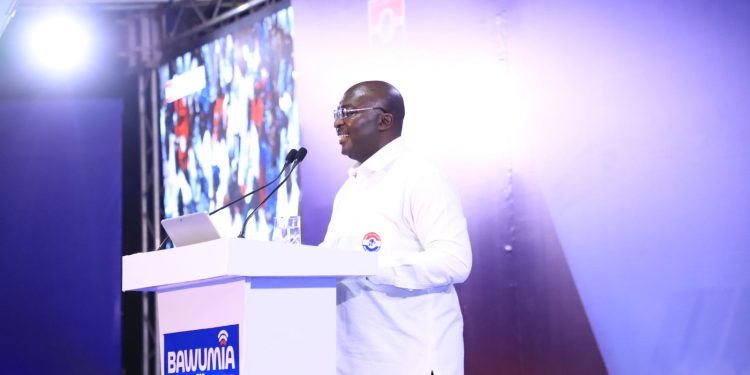adverts
Dr. Mahamudu Bawumia, the flagbearer of the New Patriotic Party (NPP), has committed to ensuring the passage of the Broadcasting Bill before the current Parliament ends, emphasising the government’s dedication to safeguarding media freedoms and promoting a pluralistic media landscape.
During a media engagement on Sunday, August 25, Dr. Bawumia assured journalists that the government recognises the importance of media freedom as a pillar of democracy and is taking concrete steps to protect it.
“In line with our philosophy and reaffirming our commitment to upholding the fundamental rights to free speech and media freedoms, we will pass and fully implement the Broadcasting Bill before the final session of Parliament this year,” Dr. Bawumia said.
adverts
The Broadcasting Bill, which has been under discussion for years, aims to regulate the broadcasting sector, ensuring that media operations in Ghana adhere to standards that protect both the public interest and media practitioners.
The proposed legislation seeks to address issues such as licensing, content regulation, and the rights of journalists, providing a framework that balances freedom of expression with responsible journalism.
Dr. Bawumia also highlighted the government’s plans to enhance the Media Capacity Enhancement Programme, an initiative aimed at improving the skills and knowledge of journalists.
“We will further resource the Media Capacity Enhancement Programme to continue enhancing the knowledge and skills of journalists,” he added.
By committing to the passage of the Broadcasting Bill, Dr. Bawumia is signalling the NPP’s recognition of the media’s crucial role in fostering accountability and transparency.
His remarks also serve as a response to concerns from media stakeholders about the need for clear regulatory guidelines to protect journalists and ensure the ethical operation of media outlets.
As the 8th Parliament nears its end, the NPP’s pledge to pass the Broadcasting Bill underscores the party’s broader agenda of upholding democratic values and protecting the rights of individuals to express themselves freely.
The move is likely to be well-received by media practitioners and advocates for press freedom, who have long called for a comprehensive legal framework to support a vibrant and independent media sector in Ghana.


